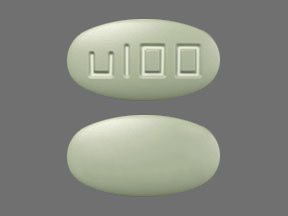
Briviact Coupons & Savings Card – Discount Prices from $1457.79
My prescription
Edit
100MG, Briviact (60 Tablets)
Select pharmacy

CVS
$1511.88
COUPON PRICE
Albertsons
$1457.79
COUPON PRICE
Walgreens
$1532.41
COUPON PRICE
Walmart
$1542.71
COUPON PRICEBriviact savings card
Show this card to your pharmacist
Albertsons
$1457.79
BIN
ID
PCN
GRP
015995
LHKPY244424
GDC
DR33
Powered by
Related anti-epileptics prescriptions
More prescriptions for epilepsy
Related anti-epileptics prescriptions
More prescriptions for epilepsy
Price history for Briviact
60 Tablets, 100MG
Average retail price for Briviact
Average SaveHealth price for Briviact
Our price history data is based on aggregated prescription data collected from participating pharmacies in America. Our prescription data updates daily to reflect the latest price changes. If you notice a missing data point, it means there wasn't sufficient data available to generate a monetary value for that date.
*Retail prices are based on pharmacy claims data, and may not be accurate when we don't have enough claims.
Briviact dosage forms
Dosage Quantity Price from Per unit 10MG 60 Tablets $1454.15 $24.24 25MG 60 Tablets $1459.50 $24.32 25MG 100 Tablets $2422.49 $24.23 50MG 60 Tablets $1460.46 $24.34 50MG 100 Tablets $2424.11 $24.24 75MG 60 Tablets $1460.44 $24.34 100MG 60 Tablets $1461.03 $24.35 100MG 100 Tablets $2425.04 $24.25
| Dosage | Quantity | Price from | Per unit |
|---|---|---|---|
| 10MG | 60 Tablets | $1454.15 | $24.24 |
| 25MG | 60 Tablets | $1459.50 | $24.32 |
| 25MG | 100 Tablets | $2422.49 | $24.23 |
| 50MG | 60 Tablets | $1460.46 | $24.34 |
| 50MG | 100 Tablets | $2424.11 | $24.24 |
| 75MG | 60 Tablets | $1460.44 | $24.34 |
| 100MG | 60 Tablets | $1461.03 | $24.35 |
| 100MG | 100 Tablets | $2425.04 | $24.25 |
What is Briviact used for?
Briviact is used as an adjunctive therapy for the treatment of partial-onset seizures in patients with epilepsy.
Is Briviact the same as Keppra?
Briviact and Keppra are not the same, but they are both antiepileptic medications. Briviact contains the active ingredient brivaracetam, while Keppra contains levetiracetam. They are used to treat seizures but have different chemical compositions and may have different side effect profiles. A healthcare provider can determine which medication is more appropriate for a specific patient.
Does Briviact cause anger issues?
Briviact (brivaracetam) can cause mood changes, including irritability and anger, as potential side effects. If someone experiences significant mood changes or anger issues while taking Briviact, it is important to consult with a healthcare provider to discuss these symptoms and consider possible adjustments to the treatment plan.
Is Briviact an opioid?
Briviact is not an opioid. It is an antiepileptic medication used to treat partial-onset seizures.
What are the side effects of brivaracetam?
Brivaracetam may cause several side effects. Common side effects include dizziness, fatigue, nausea, and vomiting. Some individuals may also experience somnolence, irritability, or coordination problems. Less common but more serious side effects can include mood changes, depression, or suicidal thoughts. It is important for individuals to report any unusual or severe side effects to their healthcare provider promptly.
